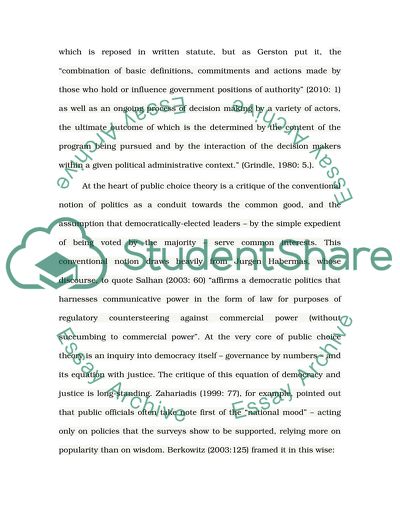Cite this document
(The Public Choice Account of How Power is Exercised in Public Policy Essay, n.d.)
The Public Choice Account of How Power is Exercised in Public Policy Essay. Retrieved from https://studentshare.org/politics/1764276-evaluate-the-public-choice-account-of-how-power-is-exercised-in-public-policy
The Public Choice Account of How Power is Exercised in Public Policy Essay. Retrieved from https://studentshare.org/politics/1764276-evaluate-the-public-choice-account-of-how-power-is-exercised-in-public-policy
(The Public Choice Account of How Power Is Exercised in Public Policy Essay)
The Public Choice Account of How Power Is Exercised in Public Policy Essay. https://studentshare.org/politics/1764276-evaluate-the-public-choice-account-of-how-power-is-exercised-in-public-policy.
The Public Choice Account of How Power Is Exercised in Public Policy Essay. https://studentshare.org/politics/1764276-evaluate-the-public-choice-account-of-how-power-is-exercised-in-public-policy.
“The Public Choice Account of How Power Is Exercised in Public Policy Essay”, n.d. https://studentshare.org/politics/1764276-evaluate-the-public-choice-account-of-how-power-is-exercised-in-public-policy.


